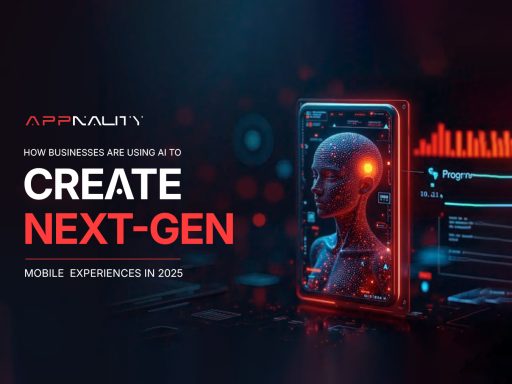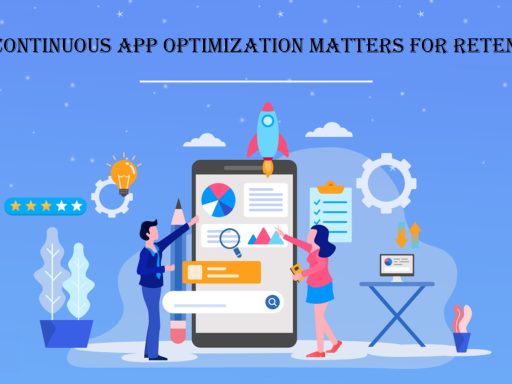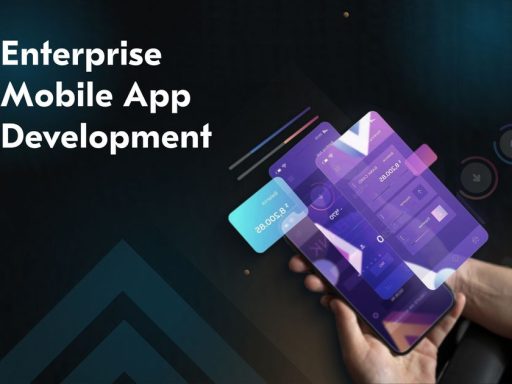The technological world is rapidly changing. Artificial intelligence has emerged as one of the cornerstones that will help bring about digital transformation. Omdia states that by 2025, the worldwide artificial intelligence software market will achieve nearly $100 billion, which is a bright indication that AI is highly significant in modern-day business activities.
The decision to collaborate with an AI app development company increases daily as technology competition rises. This entire guide aims to efficiently provide knowledge about finding the right, suitable AI app developers that contribute to accomplishing every project and producing the desired benefits and income from an individual’s project.
Learning the Environment Surrounding AI-Based App Development
The AI application development ecosystem has changed greatly over the last ten years. Currently, services range widely from the integration of machine learning to natural language processing solutions to computer vision applications by AI app development companies. This is further supported by an Exploding Topics survey that says that 82% of enterprises are either using or actively exploring AI solutions in their operations.
Custom AI development companies are now critical partners in this revolution, providing knowledge that most organizations need to possess in-house. The AI app developers combine technical know-how with domain-specific knowledge required for developing highly customized solutions to each specific business challenge.
Critical Selection Factors for an AI App Development Company
Choosing the right AI app development company is an evaluation process based on multiple factors. The decision will determine not only the immediate success of the project but also long-term technological advancement and competitive advantage.
Technical Expertise and Specialization
When choosing a suitable provider with AI application development services, technology expertise should be the utmost priority. Search for practical experience in relevant AI technologies or frameworks. A good development company in AI should prove to hold expertise in the following niches:
- Machine learning architectures and frameworks, such as TensorFlow and PyTorch, together with scikit-learn.
- Deep learning architectures.
- Neural networks.
- Technologies for NLP and Computer Vision systems.
- Cloud services and infrastructure, such as AWS, Google Cloud and Azure.
Evaluate their ability to perform beyond technical strengths and experience in the specific industry vertical. According to Forbes, 74% of organizations already using generative AI see a sizable ROI.
Track Record and Portfolio
A company portfolio is proof of experience and capabilities. When evaluating which AI app developer to work with, evaluate the following aspects of their previous projects’ portfolio:
- Complexity level and scope of previous work
- Success metrics and their results
- Industry-specific implementations
- Client testimonials and references
Gartner states that only 54% of AI projects make it from the pilot to the production phase. Therefore, seek a custom AI app development company that has delivered production-ready AI solutions that have demonstrated business impact.
The Collaboration Process: From Concept to Implementation
AI application development is a process that requires a structured approach along with open communication channels among all stakeholders. It explains the process of setting up realistic expectations and ensuring that the project is executed in a smooth manner.
Inception Analysis and Strategy Design
The process begins with a detailed analysis of the needs and requirements of your business. A reliable custom AI development company will spend some time investigating:
- Your current technological structure.
- Business processes and pain areas.
- Target users and needs.
- Regulatory requirements and compliance considerations.
- Budget constraint and timeline expectations.
This phase typically includes a stakeholder group from both companies, including business analysts, domain experts, and architects. According to research, projects that are well-prepared with adequate initial analysis succeed at a rate 2.5 times more than the average to achieve their goals.
Project Planning and Resource Utilization
Resource utilization for a successful AI implementation is highly dependent on proper project planning. The development partner should share:
- Detailed project timelines and checklists.
- Resource allocation strategy.
- Risk assessment and mitigation process.
- Communication protocols and reporting structures.
Development and Implementation Methodology
The top AI app development companies employ an iterative development methodology. In many cases, the best practices specific to AI are combined with agile methodologies. It often involves the following:
- Prototype releases on a periodic basis and feedback cycles.
- Continuous integration and deployment practices.
- Rigorous testing and validation procedures.
- Performance monitoring and optimization.
Communication and Collaboration
Clear communication channels and established collaboration protocols form the backbone of any successful project. PMI states that poor communication has been cited as contributing to 56% of failed projects, so it is necessary to establish sound communication frameworks right at the start.
Communication Protocols
For effective communication, the following must be in place:
- Status meetings and progress reports on a regular basis.
- Clear escalation paths for issues and concerns.
- Documented decision-making processes.
- Shared project management tools and platforms.
Knowledge Transfer and Documentation
Successful AI projects necessitate significant knowledge flow between the development partner and internal teams. This includes
- Documentation of algorithms and models.
- Training materials for end-users.
- Maintenance and troubleshooting guides.
- API documentation and integration guides.
Managing Costs and ROI
The financial aspect of AI app development has to be well understood and managed to successfully execute a project.
Cost Structures and Pricing Models
There are some general pricing models in AI development:
- Time and materials-based pricing.
- Fixed-price contracts.
- Hybrid models that contain both fixed and variable components.
- Performance-based pricing structures.
ROI Measurement and Success Metrics
Clear success metrics help measure the project’s progression and provide a reason to invest in the development process as follows:
- Technical performance metrics: accuracy, speed, and scalability.
- Business impact indicators: cost savings, revenue growth.
- User adoption and satisfaction metrics.
- Return on investment calculations.
Quality and Security
Quality assurance and security are important when building AI applications.
Quality Assurance Practices
Quality assurance must include all of the following:
- Model validation and testing.
- Benchmarking performance.
- User acceptance testing.
- Integration testing.
- Stress testing and scalability testing.
Security Measures
Security must include all of the following:
- Data privacy and protection.
- Model security and integrity.
- Access control and authentication.
- Relevant regulations, such as GDPR and CCPA.
Long-term Partnership and Maintenance
After successful AI implementation, long-term partnership and maintenance will ensure continuous improvement and adaptation to changing business needs.
Ongoing Support and Maintenance
Post-deployment support should include:
- Model retraining and optimization on a regular basis.
- Monitoring performance and fine-tuning.
- Bug fixing and updates.
- Security patching and updates.
Scaling and Evolution
Anticipating future prosperity and growth should include the following:
- Scalability needs.
- The integration of the AI app with new systems and data sources.
- Keeping up with the changing business.
- Technological enhancements and upgrades.
Best Practices for Success
The experience of working with an AI app development company should always be based on established best practices aimed at increasing the likelihood of the project’s success. A wide range of industry experience combined with research on successful AI implementations provides the overall best practices framework for businesses to use AI app development services in the right manner.
Strategic Vision and Goal Alignment
Clearly define a strategic vision when entering into a partnership with an AI application development company. The following aspects are to be dealt with in this strategy:
Specific business objectives and success metrics aligned with the overall organizational goals. Successful organizations define evident problems they are looking to solve or opportunities they aim to capture rather than the novelty of implementing AI.
A clear road map from when to start the implementation to when to deploy full-scale, accounting for potential problems and contingency plans for all possible scenarios that may be encountered in the development process.
This type of integration planning will encompass the capabilities of the AI solution and how it will fit and integrate with a business’s existing processes and technologies.
In-depth Stakeholder Management
The stakeholder management isn’t just the simplification to create an eco-system engagement for collaboration purposes supporting the successful deployment of AI systems, but it will have much depth about :
This calls for the formation of cross-functional teams that include business users, technical experts, and domain specialists. Such teams have to meet regularly to review progress, address challenges, and ensure that the development is aimed at meeting the business needs.
Clearly defining a governance structure in terms of roles, responsibilities, and decision-making authority. This means that programs should be established aimed at implementing change management as the organization readies itself for the integration of AI solutions. That would involve training programs, communication strategies, and support systems.
Data Excellence and Governance
Data quality and governance are the backbone of any successful implementation of AI. When interacting with AI app developers, organizations should:
Implement robust data gathering and validation procedures even before starting the development process.
Ensure there are proper data governance policies dealing with matters on privacy, security, and compliance, which may turn out to be very crucial while working with a custom AI development company to whom one has to access sensitive business data.
Develop data maintenance and update protocols to support the long-term effectiveness of the AI solutions. Standardize and document regular data quality assessment and cleanup procedures.
Agile Development and Iteration
Most successful AI implementations follow an agile development approach that focuses on the following:
Release of prototypes, followed by feedback cycles that allow the system to make quick changes based on user input and performance metrics. AI development services should incorporate this mechanism into their development methodology.
Incremental deployment methodologies that help in risk management with progressive learning and optimization for continuous improvement.
Continuous enhancement processes that use performance data to enhance AI models and applications over time and include model retraining and model optimization based on usage and real-world patterns.
Technical Excellence and Quality Assurance
Maintain high technical standards throughout the AI app development process. Organizations need to collaborate with their AI app development company to:
Have comprehensive testing protocols that both cover technical performance and business utility. It would include unit testing, integration testing, user acceptance testing, and performance testing under various conditions.
Enforce adequate security for the AI models and the information they deal with. This includes encryption, access control, and periodic audits to search for known and unknown weaknesses.
Document every aspect of the AI system in detail, from design down to details on implementation, upkeep, and troubleshooting guides.
Performance Monitoring and Optimization
Performance monitoring and optimization are necessary for the success of AI implementations. For this purpose, it is expected that organizations take the following measures:
Deploy detailed monitoring systems tracking technical performance metrics and business impact indicators for the early detection of issues and opportunities for improvement.
Develop a review cycle with the AI application development services provider on performance and plans for optimization. Technical performance, business impact, and user satisfaction metrics should be incorporated into these reviews.
Implement feedback loops that capture user experience and operational insights to guide further improvement and expansion of the AI solution.
Knowledge Transfer and Capacity Building
Build internal capability as part of engaging an AI app development company to support long-term success:
Develop structured knowledge transfer programs designed to incrementally build internal competencies for the management and maintenance of AI solutions, thereby reducing dependency on third-party suppliers and increasing effectiveness in exercising oversight of AI operations.
This implements training for both technical teams and end-users for the efficient use of AI solutions.
Create centers of excellence or similar structures to act as custodians of AI knowledge in your organization. This will ensure continuity and consistent best practice usage across multiple AI initiatives.
Risk Management and Compliance
Risk management practices should be infused at all stages of an AI app development lifecycle:
Technical, operational, and business risks must be assessed regularly, and considering the implementation of AI, risk factors must be considered immediate as well as long-term.
Compliance with relevant regulations and standards: collaborate with a custom AI development company to achieve adequate controls and documentation.
This also encompasses the design of fallback plans for various risk events, such as technical failures, data problems, or changing business needs.
The implementation of best practices in AI app development requires organizations and their partner in AI development to constantly pay attention and make efforts. Generally, organizations succeeding in the implementation of those practices in AI development seem to have higher success rates compared to others, higher returns on investment, and sustainable outcomes in the long term. Effectiveness can be ensured if regular review and refinement are guided by project experience and continually changing business needs.
Conclusion
Any organization considers a partnership with an AI app development company a strategic move. Good partner choice, proper communication, sound project management, and long-term views are the basis of its success. With these guidelines and best practices provided in this guide, organizations are most likely to be able to use AI effectively to have greater business impact.
New technologies and methodologies continually emerge into the market and continue changing the future of AI application development. The organizations that partner with custom AI app development companies are best equipped to benefit from such developments and will be continuously better positioned to win and maintain competitive advantage in this increasingly AI-oriented business environment.
Remember that successful AI implementation is not purely a matter of technology but of creating value through thoughtful application of AI capability and solutions to real business issues. The right partner, plus an appropriately structured approach to both development and implementation, will better position organizations to unlock true AI technology potential while decreasing risks and maximizing investment return.





